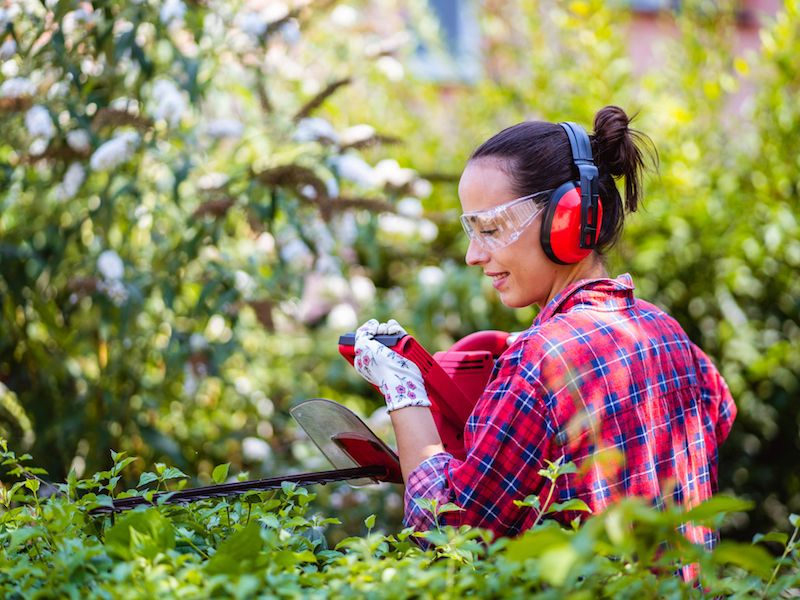
Eating right and safeguarding your hearing have some parallels. It’s hard to know where to begin even though it sounds like a smart idea. This is particularly true if you don’t consider your daily environment to be particularly noisy and there aren’t any apparent risks to your ears. But everyday life can put stress on your ears and your senses, so practicing these hearing protection techniques can help maintain your auditory acuity.
If you want to keep enjoying the sounds around you, you need to do everything you can to impede down the impairment of your hearing.
Tip 1: Hearing Protection You Can Wear
Using ear protection is the most sensible and simple way to safeguard your hearing. This means taking basic actions to diminish the amount of loud and damaging noises you’re exposed to.
For many people, this will mean utilizing ear protection when it’s required. Two general forms of protection are available:
- Ear Plugs, which are put in the ear canal.
- Ear Muffs, which are placed over the ears.
Neither form of hearing protection is inherently better than the other. Each style has its benefits. Your choice of hearing protection should, most notably, feel comfortable.
Tip 2: When Sound Gets Harmful, be Aware of It
But how can you be sure when to use hearing protection? Noise that is painful is usually considered harmful. But much lower volumes of sound can damage your ears than you might believe. The sounds of traffic, for instance, are loud enough to begin injuring your hearing after just a couple of hours. An important step in safeguarding your hearing, then, is recognizing when sound becomes harmful.
The following threshold is when sound becomes harmful:
- 95-100 dB: This is the typical volume of your earbuds or the level of farm equipment. This level of sound becomes damaging after 15-20 minutes.
- Over 100 dB: This is where you can injure your hearing very quickly. Damage is done in around thirty seconds with sounds above this threshold. For instance, jet engines and rock concerts will injure your hearing in 30 seconds.
- 85 decibels (dB): This volume of sound is harmful after around two hours of exposure. This is the volume of sound you’d expect from a busy city street or your hairdryer.
Tip 3: Make Your Phone Into a Sound Meter
Now that we have a general concept of what volume of sound might be harmful, we can take some precautions to ensure we limit our exposure. The trick is that, once you’re out and about in the real world, it can be difficult to determine what’s too loud and what isn’t.
Your smartphone can now be used as a handy little tool. There are dozens of apps for iPhone, Android, and everything in between that turn your device’s microphone into a sound meter.
In order to get an understanding of what dangerous levels of noise really sound like, use your sound meter to check the decibel level of everything you are hearing.
Tip 4: Monitor Your Volume Settings
Most people today listen to music via their phone or smart device, and they normally use earbuds while they do it. This sets up a risky situation for your hearing. Your ears can be considerably damaged if you set your earbuds to high over a long period of time.
So keeping an eye on the volume control means protecting your hearing. You should not increase the volume in order to drown out sounds elsewhere. And we suggest using apps or settings to make sure that your volume doesn’t unintentionally become dangerously high.
If your hearing begins to decline, earbuds can become a negative feedback loop; in order to make up for your faltering hearing, you could find yourself continuously increasing the volume of your earbuds, doing more damage to your ears in the process.
Tip 5: Get Your Hearing Examined
You may think that having a hearing exam is something you do only when your hearing starts to diminish. Without a baseline to compare results to, it’s not always easy to detect a problem in your hearing.
Scheduling a hearing screening or exam is a good way to obtain data that can be used for both treatment and analytic purposes, making certain that all of your future hearing (and hearing protection) decisions have a little bit of added context and information.
Pay Attention to Your Hearing
In a perfect world, protecting your ears would be something you could do continuously without any problem. But there are always going to be difficulties. So protect your hearing whenever you can, as often as possible. You should also have your ears examined regularly. Use these suggestions to improve your chances.
